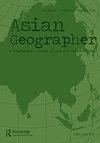香港长者参与户外活动的时间使用视角
IF 2.2
Q2 GEOGRAPHY
引用次数: 2
摘要
摘要促进积极老龄化已成为全球城市规划和政策制定的一个关键目标。我们的研究旨在从时间使用的角度提供新的见解。在本文中,我们以香港为个案研究,调查60岁及以上的人如何分配他们在各种户外活动中的时间。我们通过两项十年一次的时间使用调查,分析了个人和家庭特征如何影响老年人外出活动的持续时间。由于政策的相关性,我们重点关注就业状况和年龄的影响,特别是由于香港政府正在考虑将退休年龄从60岁延长到65岁。2002年至2013年的时间使用和活动参与情况比较表明,在这两个领域,就业状况与外出活动和旅行的持续时间呈正相关;它还解释了随时间的变化。调查结果还强调了性别、年龄、教育程度、住房类型、住房保有权、家庭规模和收入在决定老年人活动——旅行模式方面的作用。我们的研究表明,政府增加60岁及以上人群中就业人口比例的政策,以及由于各种经济或社会力量导致的老年人社会人口构成的变化,可能会改变老年人的时间使用和外出活动模式。我们的研究表明,香港和亚洲及其他地区的城市必须致力于创建包容、有利于老年人的社区,使其有充分机会获得各种活动机会,以提高老龄化社会的生活质量。本文章由计算机程序翻译,如有差异,请以英文原文为准。
A time-use perspective of out-of-home activity participation by older people in Hong Kong
ABSTRACT Promoting active aging has emerged as a key objective of urban planning and policymaking globally. Our study aims to provide new insights from a time-use perspective. In this paper, we use Hong Kong as a case study to investigate how people aged 60 and older allocate their time in various out-of-home activities. We analyse how personal and household characteristics affect the duration of out-of-home activities among older adults using two decennial time-use surveys. We focus on the influence of employment status and age because of policy relevance, particularly since the Hong Kong Government is considering extending the retirement age from 60 to 65. Comparison of time-use and activity participation between 2002 and 2013 suggests that employment status is positively associated with the duration of out-of-home activities and travel in both cross-sections; it also explains change over time. Findings also underscore the role of gender, age, education, type of housing, tenure of accommodation, household size, and income in determining older people’s activity–travel patterns. Our study shows that government policies to increase the share of employed people in the 60-years-and-older cohort and changes in the sociodemographic makeup of older people owing to various economic or societal forces could alter older people’s time-use and out-of-home activity patterns. Our study suggests that Hong Kong and other cities in the Asian region and beyond must aim at creating inclusive, age-friendly communities with adequate access to various activity opportunities in order to enhance quality of life in an aging society.
求助全文
通过发布文献求助,成功后即可免费获取论文全文。
去求助
来源期刊

Asian Geographer
GEOGRAPHY-
CiteScore
3.30
自引率
0.00%
发文量
7
期刊介绍:
Asian Geographer disseminates knowledge about geographical problems and issues focusing on Asia and the Pacific Rim. Papers dealing with other regions should have a linkage to Asia and the Pacific Rim. Original and timely articles dealing with any field of physical or human geographical inquiries and methodologies will be considered for publication. We welcome, for example, submissions on people-environment interactions, urban and regional development, transport and large infrastructure, migration, natural disasters and their management, environment and energy issues. While the focus of the journal is placed on original research articles, review papers as well as viewpoints and research notes under the category of “Asian Geography in Brief” are also considered. Review papers should critically and constructively analyse the current state of understanding on geographical and planning topics in Asia. The ‘Asian Geography in Brief’ section welcomes submissions of applied geographical and planning research about Asia. The section aims to showcase (1) the diverse geography and planning of Asia; and (2) the diverse geographical and planning research about Asia. The journal will also publish special issues on particular themes or areas. Book reviews can be included from time to time.
 求助内容:
求助内容: 应助结果提醒方式:
应助结果提醒方式:


